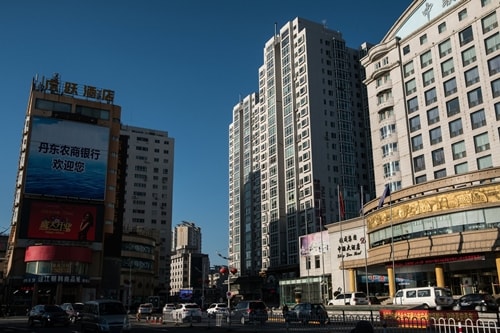The tycoon who controls the business empire between China and North Korea
Ma Xiaohong is accused of using his business empire to help North Korea evade sanctions.
|
Businesswoman Ma Xiaohong. Photo:NYTimes. |
Not long ago, Ma Xiaohong was the face of China's trade with North Korea. At 44, she built an empire that accounted for a fifth of trade between the two countries, had exclusive rights to export petroleum products to North Korea, and was described by officials as an "outstanding woman."
Now, Ms. Ma's fate has become a test of China's willingness to support President Trump's efforts to tamp down North Korea's nuclear ambitions, according toNYTimes.
Last year, US prosecutors accused Ms. Ma of using her companies to help North Korea evade international sanctions. China said it would investigate Ms. Ma's main company.
China has shown a willingness to support tough sanctions at the UN Security Council over the past year, but has done so reluctantly for historical and strategic reasons. North Korea has long seen China as its only real ally. Analysts also say economic factors play a role.
“The Chinese don’t want to do that,” said Ken E. Gause, a North Korea expert at the CNA research organization in Arlington. “They make a lot of money on that border, there are a lot of relationships between the traders on the border and the patrons in Beijing.”
Ma's whereabouts are unclear. China says it has found no evidence that she or her partners aided North Korea's weapons program, but she remains under investigation for "economic crimes." It is unclear whether she has been arrested or where she is.
|
The bridge connects Dandong, China with North Korea. Photo:NYTimes. |
Business empire
Ma was just 24 when North Korea suffered a severe famine and began opening up its economy, first allowing scrap exports in 1996. Ma's company in Dandong, a city in Liaoning province bordering North Korea, bought scrap from North Korea to resell in China. "After that, we received nearly 10,000 tons every day," she said.
Ms. Ma expanded into other products and commodities. She invested in companies inside North Korea, including a clothing factory and a gold mine. In January 2000, she founded the Dandong Hongxiang Industrial Development Company.
By 2010, Ma had built a conglomerate that accounted for a fifth of imports and exports between the two countries. She built relationships with officials on both sides, including Jang Song-thaek, the uncle-in-law of North Korean leader Kim Jong-un. (In 2013, he was executed for treason and plotting a coup.)
In Dandong, Ms. Ma is considered one of the city's 10 most prominent women. In 2013, she was elected as a delegate to the provincial people's congress, showing her connections with the political elite.
On the day of North Korea's first nuclear test in 2006, she was meeting with executives from one of the country's largest companies. She described North Koreans as educated, but she also saw the poverty that many ordinary people faced. "North Korea has computers, but North Korea is still North Korea," she said.
Sanctions against Pyongyang have disrupted some of Ms. Ma’s business, but she has found ways around them. In 2009, under President Barack Obama, the United States imposed sanctions on the North Korean Kwangson Bank, one of the country’s most prominent banks, accusing it of providing financial support to two companies involved in arms and missile trafficking.
In the months that followed, Ms. Ma’s company opened or acquired subsidiaries and front companies in Hong Kong and other tax havens, prosecutors say, for the purpose of doing business with North Korean banks and other entities, as well as laundering money and importing banned materials used in weapons production.
Dandong Hongxiang opened 28 more branches in the two years after sanctions were imposed on North Korean banks, according to a report by C4ADS, a Washington-based research organization.
By the end of 2016, after the US indictments, Ms. Ma’s network had expanded to 43 entities on four continents, some of which C4ADS said were involved in selling North Korea chemicals used in the production of nuclear bombs or missiles.
China also banned exports of such items, but officials took no action against Dandong Hongxiang until US diplomats informed them of a secret complaint filed in a New Jersey court in August 2016 against Ms. Ma and three of the company’s executives.
Liaoning officials responded by announcing an investigation, but the government had little say until the State Council Information Office issued a statement last week. Initial reports in state media were later censored, suggesting they wanted to minimize attention to the case.
A clue to Ms. Ma’s fate was revealed in a statement issued by Liaoning Darong Information Technology, where she had served as chairwoman of the board since 2013. In February 2016, two months after China announced its investigation, the company announced that she was no longer its leader, explaining that it “could not contact Ms. Ma, and her relatives did not know the situation.”
China has shut down parts of Ms. Ma’s business empire, such as freezing her stake in the main company Dandong Hongxiang. The company’s headquarters in Dandong have been closed since last spring.
Few people in Dandong discuss Ms. Ma these days, but several companies affiliated with Dandong Hongxiang continue to operate, including a transport arm and a hotel.
|
Companies related to Ms. Ma's main company continue to operate in Dandong. Photo:NYTimes. |
As late as last month, a North Korean restaurant remained open, as did a nearby gallery selling paintings by North Korean artists. The businesses were registered in Ms. Ma’s name but her husband was the manager, according to staff there.
Ms Ma herself seems to have foreseen the risks to her business. She told Southern Weekly a few years ago: “If there is a change in the political situation, our business will be ruined.




